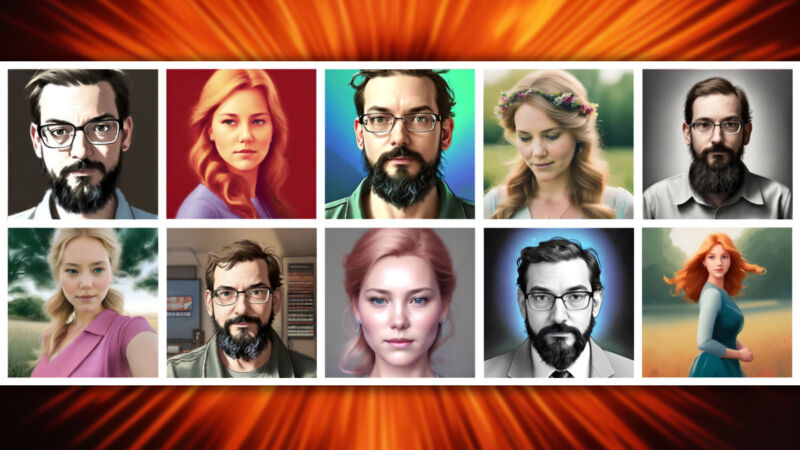
Enlarge / A selection of male and female “Magic Avatars” generated by the Lensa AI app, including a beard cannot be contained. (credit: Benj Edwards / Ars Technica)
Over the past week, the smartphone app Lensa AI has become a popular topic on social media because it can generate stylized AI avatars based on selfie headshots that users upload. It’s arguably the first time personalized latent diffusion avatar generation has reached a mass audience.
While Lensa AI has proven popular among people on social media who like to share their AI portraits, the press has widely focused on the app’s reported tendency to sexualize depictions of women when Lensa’s AI avatar feature launched.
A product of Prisma Labs, Lensa launched in 2018 as a subscription app focused on AI-powered photo editing. In late November 2022, the app grew in popularity thanks to its new “Magic Avatar” feature. Lensa reportedly utilizes the Stable Diffusion image synthesis model under the hood, and Magic Avatar appears to use a personalization training method similar to Dreambooth (whose ramifications we recently covered). All of the training takes place off-device and in the cloud.

